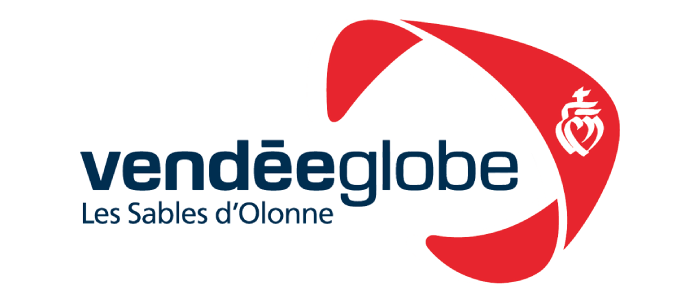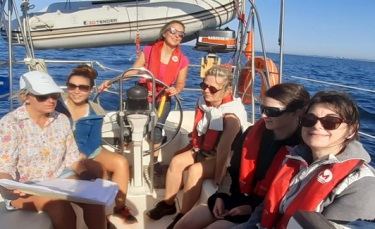What is a good boating or sailing resume?
What is a good boating or sailing resume?
A good boating or sailing resume can be mandatory when you want to rent or charter a boat (sailboat or powerboat) or when you want to join a boat as a crew. Crew finder websites like Coboaters offer ways to create sailing resumes or sailing profiles for cre or for boat owners and skippers. But how do it right? What to say? How to say it?
The 6 main topics of a good boating or sailing resume:
A sailing or boating resume or CV as it is often called in Europe is like a job resume. You must state your maritime qualifications and experiences but not only. We see it as a sailing or boating profile that will allow others to know you better and to anticipate how they can go along with you on board.
The 6 main topics of a sailing resume are:
- Sailing experience
- Sailing or Boating certificates
- Cruising profile
- Racing profile
- How you are on board
- Your Sailing bio in a few words
1- How to describe your experience in a sailing resume:
In this part of your CV, you tell others your sailing level and background. Are you a beginner, a confirmed crew or a skipper? You will also describe your previous cruises, trips or offshore passages. In a few words, you can list your major and relevant accomplishments. You can summarize each experience but you can also be very accurate and add as many details as you want.
- Example 1: A summary of your boating experience
- 2021: A few day sail on 25 feet boat in Newport, RI
- 2022: Cruise with friends for two weeks in the Bahamas on a 45 feet catamaran
- 2023: Crew on different boats. Total of 20 days during the season
- Example 2: More detail sailing resume includes dates and number of days or miles sailed.
- 1990’s: learn how to sail in Florida. Sailed every year for 7 years between 1992 and 1999 with the same crew
- 2003: Crew for boat delivery between FLorida and Marble Head, MA. 600 miles on a 50 feet Jeanneau
- 2004: March to June: Spent time with liveaboard friends in the Bahamas
- 2005: May to September: Part of a racing team on a J109 every Monday and weekends in North Carolina
- 2006: ….etc…
You can follow advice from Paul, a very active Coboater crewmember who sailed with many different skippers and captains. He is a Super Coboater which means he got a lot of good reviews and feedbacks.
2- List your Sailing and Boating Certificates:
Many bareboat charters company or rental organization will require certificates to rent you a boat. It is good to have a sailing resume ready to hand over or an online profile you can refer to. This part of your document is important and you must be able to show the certificates it they ask for it. We advise to keep a copy with you when you travel and want to join a crew or a charter boat.
You must list your certificates with a date and a description and don’t forget to include certification obtained during seminars or other trainings like safety seminars or navigation classes:
- Example 1:
- ASA 101 – June 2016 – New York
- ASA 103 – July 2017 – New York
- ASA 106 – May 2020 – Annapolis, MD
- Offshore Safety Seminar in 2019 in Boston, MA
- Example 2:
- USCG Captain 100 Ton US Master since 2005
- US Sailing Coastal Passage making in 2004
- US Coast Guard Navigation course in 2006
3- Your cruising profile
This part is often neglected by most boaters but we believe it is important if you want to sail with like-minded people. Your cruising profile will explain what you like when you cruise.
Examples:
- Do you like snorkeling, tourism, music?
- Do you want to spend the night at anchor or you absolutely need to stay in a marina?
- Do you need your private bathroom on board?
- Do you like cooking and agree to have diners on board or do you want to go out on shore every night?
Your goal is to meet the right people. You want to make sure they will like the same things as you and vice versa. For more about this topic, check this article: 12 Best Ways to Find People to Sail With
4- The racing resume/profile
Skip this part if you do not want to join a racing team. However if you want to sail every week or every weekend, reaching out active racing skippers can be a good way to find boats. Racing is fun and a fantastic way to improve your skills and meet new friends.
Your racing resume must include:
- Your previous racing experiences. It is best to detailed the most important achievement especially if you won trophies or regattas
- Your position on board during racing events:
- Example: Trimmer, Grinder, Pit, Helm, Tactician…
- The number of races
- Example 1: 10 regattas per year for the last 5 years
- Example 2: US J22 Championship in 2019, Newport Yacht Club weekly races between 2020 and 2024
- The type of boats:
- Example: Racing trimmer on Dufour 35 for 5 years every weekend.
You can also explain some particular skills. For example a lot of skippers will be interested in a crew who can handle spinnakers. State what you can do but also mention what you do not want or cannot do. For example you can clearly state that you do not want to be a foredeck crew.
5- How you are on board
This part is not mandatory but like the cruising profile, it will help you find the right people. We encourage you to tell others more about your personality.
Examples:
- Do you like being quiet or do you like talking all the time,
- Do you like cooking, d
- Do you smoke
- Do you like alcohol on board
- Are you foodie
- Do you have medical conditions that may prevent you to perform some tasks
6- Your Sailing bio in a few words
It is always good to add a few words to describe what you are looking for. Like a professional resume your goal is important and must be shared with fellow sailors. You can explain whatever you want in this section as long as it is related to sailing or boating.
Example: I have been sailing for a long time but do not have much offshore experience. I am willing to participate in everything on board including cooking but I will not be able to climb the mast. I am looking for sailing companions and friends to sail with as often as possible.
Additional recommendations for your Sailing Resume
Here is short list of essential points to take into consideration when writing your boating CV:
- Be honest: Tell only the truth and do not try to show more than you know. When at sea people will quickly realized you overestimated your capacity.
- State your sailing skills: Do mention what you know best like for example docking or trimming
- State what you don’t know: For example, if you do not know how to dock the boat or take the helm. It is better to say it upfront
- Mention your medical conditions if any: Explain your restrictions if you think they can impact you or others on board especially for offshore or long cruises or races.
- State your non sailing related skills: This par tis important if you join a boat for long cruise. Do not hesitate to explain what you can do on board in addition to your sailing skills. A lot of skippers will be happy to know if you can cook or play music or make cocktails. It is part of your life on board and will help you meet with like minded boaters.
Last words
There are many ways to write a good boating or sailing resume. You can adapt it to your goal and the audience and don’t forget to update it every year or once you complete a significant achievement.
For more about this topic, you can check theses articles:
11 Tips for skippers to find crew
How to introduce yourself to other sailors
Do you need to be experienced to join a sailboat


